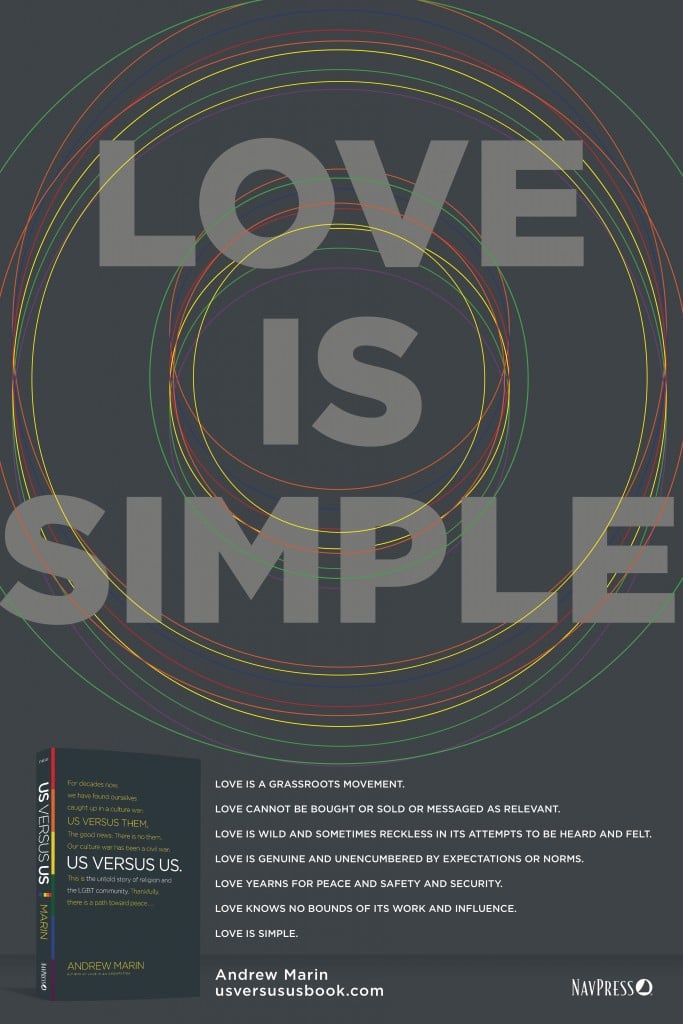 The following post is by Jason Bilbrey, our Director of Pastoral Care here at The Marin Foundation. You can read more from Jason at his blog, www.jasonbilbrey.com or follow him on Twitter at @JasonBilbrey.
The following post is by Jason Bilbrey, our Director of Pastoral Care here at The Marin Foundation. You can read more from Jason at his blog, www.jasonbilbrey.com or follow him on Twitter at @JasonBilbrey.
I’ve been called “reverend” more than a few times in the last few years. Doing pastoral care for The Marin Foundation, I’m engaged in the kind of spiritual conversation with folks that reverends have. And being a seminary-educated, straight, white male, I fit the mold cast by church tradition and corroborated by a Google image search of the word. I look like a “reverend.” And last week, I became one.
My journey toward ordination began unexpectedly in December when a friend asked me to officiate her wedding this summer. I hadn’t planned on ever getting ordained. I don’t know why. It didn’t fit with my sense of identity. It felt elitist, I guess.
“Blessed are you, Lord, our God, ruler the universe who has not created me a woman.” This is a prayer that many first-century Rabbis used to recite every morning, along with “…he who has not made me a gentile,” and “…he who has not made me a slave” (Morning Blessings, Artscroll Siddur, p. 12.). To be a middle- or upper-class, Jewish man in first-century Palestine meant inheriting a position of spiritual authority, if you wanted it.
Jesus was a free, Jewish man as well. He was a rabbi. He fit that pedigree. But his conventional rabbi appearance was immediately subverted every time he opened his mouth. He didn’t talk like the other rabbis. He didn’t guard or flaunt the office the way other Rabbis did. Jesus gravitated toward and exalted those whose gender, ethnicity and/or class precluded them from serving God in a public way as he did. He surrounded himself with the disenfranchised on the margins of society–samaritan women, lepers, tax collectors.
When certain people were prohibited from coming to God, God himself did what was prohibited and came to them. The last become first, and the first become last. That’s the Good News Jesus taught and embodied.
The Gospel’s answer to the problem of privilege (as glaring among today’s spiritual leaders as it was among those in Jesus’ day) is that “there is neither Jew nor Gentile, neither slave nor free, nor is there male and female, for [we] are all one in Christ Jesus” (Gal. 3:28). That is as true for the Church as it is for Church leadership. Just like communion (another sacrament who’s meaning is obscured by a sense of formality), ordination is about being invited to participate in God’s work, no matter who you are. God doesn’t call, prepare, bless and ordain only straight, white men like me. And neither does the association of ministers who just designated me “reverend.”
At the end of the day, I’m happy to be ordained in the spirit of Junia, Eunice and Priscilla, three early church leaders who happened to be women; of the Ethiopian Eunuch, whose ethnicity and status as a sexual minority didn’t preclude him from being tapped to advance the Gospel “to the ends of the earth;” and of the Apostle Paul, whose celebration of diversity within the Body of Christ (Rom. 14:1-12) should set the tone for every ministry.
For this reluctant reverend, ordination is all about who I’m serving. And also who I’m serving with.
Much Love.











